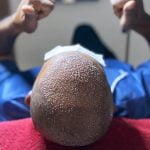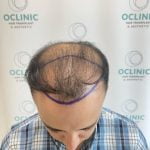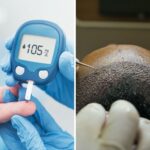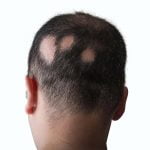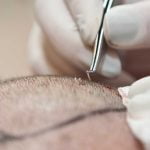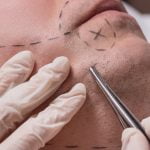Contents
ToggleCan Diabetics Have Hair Transplantation?
Can diabetics have a hair transplant, does sugar shed hair, does diabetes trigger hair loss Questions such as these are the subjects that our clients with diabetes frequently research and wonder.
We will answer your questions in this article. We will provide you with detailed information about the subject.
Hair loss in men and women is a common condition. When the problem of hair loss intensifies, people experience baldness or hair thinning. Hair transplantation, which is a permanent method, is recommended for this situation, which depresses morale over time.
However, some conditions must be met in order to have a hair transplant. Having a hair transplant is not right for everyone. Therefore, if the person has a disease or allergy, the patient is subjected to an evaluation.
Can diabetics have hair transplantation, what is diabetes, what should diabetics pay attention to in hair transplantation? We will answer questions such as: Let’s answer all the questions in order.
Psychological Effects of Hair Loss
What is Diabetes?
Glucose, one of the types of sugar, constitutes one of the main energy sources for our body and body. But these glucoses have a limit.
Unhealthy glucose level in the blood in our body reveals health problems over time. These problems lead to short-term or long-term health problems depending on the level and type of glucose.
For a healthy body, the body converts the sugar and food we take into energy. Sugar from food is converted to glucose. In order for glucose to be converted into energy, there must be a hormone called insulin.
The body of people with diabetes can either not produce enough insulin or not at all. In this disease, some nutrients taken into the body are not converted into energy. For example, when diabetics consume fruit, starchy vegetables, sweets, bread and cereals, their bodies cannot convert these nutrients into energy.
Since the body cannot convert the glucose obtained from food into energy, changes occur in blood values. High blood sugar occurs over time.
Diabetes is seen in most of the Turkish society. It has been proven by data that there are 7 million diabetics, especially between the ages of 20 and 79. For this reason, Turkish society needs to pay more attention to the nutrition program. A healthy body is through healthy food.
A person with diabetes must go to a regular health check-up in order to maintain his health. It is necessary to manage diabetes by using the diabetes medications given by the physician in accordance with the prescription.
Likewise, diabetes support is very important for health in this process. If you are overweight, losing weight also allows you to live a healthier life. It plays an active role in the treatment process.
What are the Symptoms of Diabetes?
Symptoms of diabetes differ from person to person. Statements such as “a person with diabetes has all the symptoms” or “the presence of one symptom is proof of diabetes” are incorrect.
Diabetic patients generally have the following symptoms:
- Urinating heavily at night
- to be thirsty often
- get hungry often
- Numbness or tingling in feet and hands
- Constant feeling of tiredness
- Extremely slow healing of wounds
- More than usual infection
- Having very dry skin that is different from normal
These are some of the symptoms seen in diabetic patients. If you have these symptoms, you should definitely consult a doctor and have your blood sugar levels checked. You can prevent the progression of your disease by making the necessary checks regularly.
Types of Diabetes
Diabetes has its own types. They also have different features.Gestational diabetes, which is called type 1, type 2 and gestational diabetes, is frequently seen in patients.
- The characteristics of type 1 diabetes are as follows: this type of diabetes constitutes 10% of all diabetes. This type of diabetes is generally seen in young people and children. People with type 1 diabetes have to use insulin every day.
- The characteristics of type 2 diabetes are as follows: it constitutes 85% of all diabetes. Type 2 diabetes creates a condition in which the body becomes resistant to the standard effects of insulin, in which the pancreas loses its capacity to produce the necessary insulin.This disease can be seen at any age, including children. It is also known as the most common type of diabetes.
- Gestational diabetes, unlike others, is a type of diabetes that occurs during pregnancy (pregnancy). What is better than the others is that it disappears after birth, the disease goes away.
Diabetic patients are determined by a detailed examination, which type of diabetes they have. Diabetes has some side effects on the body. These show different effects from person to person.
Does Diabetes Cause Hair Loss?
Diabetes is a condition that can trigger hair loss. The reason is that high blood sugar damages blood vessels. As a result of this situation, the amount of oxygen and nutrients delivered to cells and tissues may decrease.
A person’s hair can also be adversely affected by a lack of nutrients and oxygen. As a result, the hair may decrease and fall out. Hair can thin and break over time.
Other causes of diabetes can also affect hair loss.
Effects of Diabetes on Hair Loss
- Stress hormone or high cortisol: High cortisol or stress hormone can affect insulin resistance. This may result in high blood sugar. Hair follicles are also adversely affected by the effect of high cortisol or stress hormones. It is normal for hair loss to occur after this situation.
- Alopecia Areata: Alopecia areata is one of the types of hair loss seen in type 1 diabetes. This disease occurs as a result of the immune system attacking the hair follicles.
- Alopecia areata, also known as an autoimmune disease, causes hair loss on the scalp and other parts of the body. You can read our blog post to have detailed information about alopecia areata.
- Low-calorie diets: Low-calorie diets also cause hair loss. If you consume less than a thousand calories in a normal day, the diet may show its side effects over time.
These side effects include hair loss, constipation, fatigue, and irregular heartbeat. Deficiencies such as protein and iron in the diet also trigger hair loss. Nutrition should be adequate.
Diabetics Can Have Hair Transplantation
Yes, diabetics can have a hair transplant. One of the side effects of diabetes is hair loss. Hair transplantation is preferred as a solution for hair loss problems that worsen over time. However, this practice is not for everyone.
Diabetes patients should undergo a detailed examination and this decision should be made as a result of comprehensive evaluations. After analyzing the patient’s disease type and degree, it is the right thing to decide on the hair transplant procedure.
Since type 1 diabetes patients generally have high glucose levels, hair transplantation is not suitable for them. Hair transplantation poses a risk in these patients. Our experts generally do not recommend hair transplantation to type 1 diabetes patients.
Type 2 diabetes patients can only have hair transplantation if their sugar levels are under control. It would not be right to have a hair transplant without eliminating all possible risks.
What should diabetics pay attention to in hair transplantation?
Diabetics should pay attention to these points in order to eliminate or reduce the risks in hair transplantation:
- Diabetics should have all tests done. The process begins as a result of the controls and evaluations.
- The nutrition program must be strictly followed. As a result, sugar should be under control.
- All drugs used should be told to the hair transplant surgeon. Other than those related to diabetes, those that are not should also be mentioned.
As a suggestion;
In our blog post, we tried to answer your questions in detail. However, you should not forget that you should mention all your illnesses in one-on-one meetings with your doctor.
You should answer all your questions by talking to our experts. Our answers are intended to be helpful and educational, not medical advice. Since the content of the disease will vary from person to person, it would be more beneficial to ask all your questions to our physicians. Even the smallest detail can be very important.
You can contact us for detailed information and questions, and you can meet with our experts thanks to the preliminary examination.


